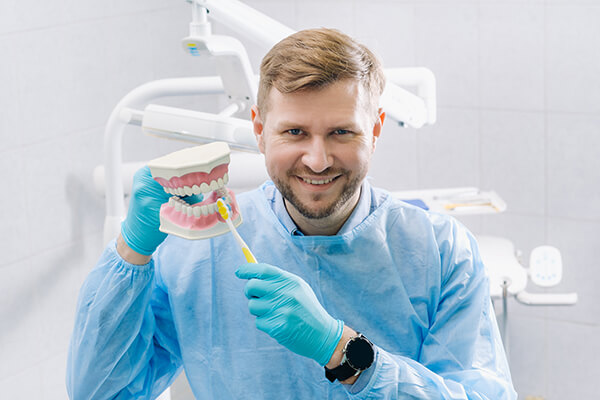Table of Contents
Dentists don’t take insurance for cleanings—and yet they’re thriving. Why can’t we do the same in medicine?
It’s a question more physicians should be asking. Because right now, dentists are building profitable, scalable, and flexible practices at a rate that far outpaces physicians. And it’s not because they’re smarter. It’s because they’re trained to think like owners—while most doctors are trained to be employees.
Let’s break down what they’re doing right.
1. Dentists Start Sooner
Dentists are often encouraged to open their own practice just a year or two out of school. Ownership is expected—it’s the norm.
There’s even an entire community dedicated to business ownership in dentistry. Check out dentaltown.com. Doctors in general are no where near up to the business acumen of the average dentist.
Physicians, by contrast, are told to wait.
Wait until you finish residency.
Wait until you build a panel.
Wait until you’re more “seasoned.”
But all that waiting creates dependency. It delays decision-making and builds fear around ownership. By the time most doctors are in a position to consider solo practice, they’ve accumulated financial obligations, inertia, and fear of the unknown.
Dentists don’t fall into that trap. They start earlier, build sooner, and benefit longer.
2. They Avoid the Insurance Trap
Dentists have normalized cash pay. Routine services like cleanings, whitening, and crowns are often out-of-pocket—and patients expect it.
Physicians? Many of us can’t even tell you what our services cost without going through billing. We’ve tied ourselves to a system of CPT codes, prior authorizations, and insurance games just to get paid a fraction of what we bill.
Dentists cut out the middleman. And as a result, they set the terms—not the insurance companies.
3. They Scale on Their Terms
Dentists build multi-location practices through ownership, not private equity. They hire associates, delegate operations, and use systems to scale efficiently.
Physicians, on the other hand, tend to think of growth only in the context of large health systems or selling to private equity. And too often, selling means losing control, autonomy, and the upside of long-term equity.
Dentists scale with intention. Doctors often scale by surrender.
4. Dentists Expect to Own—Doctors Expect to Be Employed
Here’s the biggest difference:
Dentists expect to run a business.
Doctors expect to work for one.
That single mindset shift is everything.
Ownership gives you control over your income, your schedule, and your future. It allows you to practice medicine the way you believe it should be delivered. And most importantly—it builds wealth.
Yet many doctors fear the risks of going solo more than they fear the grind of staying employed. That’s a tragedy. Because you make money by being a business owner. You gain freedom by being a business owner. You protect your values by being a business owner.
Dentists understand that. And they act on it.
Final Thoughts
Dentistry isn’t perfect. But the profession has embraced business ownership in a way medicine hasn’t. And the results are clear: more autonomy, more flexibility, and more profit. I’m all the more happier for it, and you should look into it too.
If you’re a physician tired of the hamster wheel, take a hard look at what dentists are doing.
They’re not smarter.
They’re just playing a better game.



